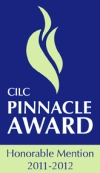A former student and I were talking recently, and she mentioned the thesis she completed as part of her Master of Education degree at our university.
“I’m going to stop you right there,” I said. “You didn’t do a thesis. You did a capstone project.”
“What’s the difference?” she asked.
It is a common question among students. Students also ask what the difference is between a dissertation and a thesis. Three things they all have in common are:
- Completed in partial fulfillment of an academic degree.
- Intended to showcase the student’s knowledge on a particular topic.
- Approved in some way by the institution that grants the degree.
But that’s about where the commonalities end. The definitions I offer below may vary from one country to another. I am speaking here mainly about Canada, so if you live in a different country, note that the definitions may differ where you are.
Dissertation
This is usually completed as part of a doctoral degree (e.g., PhD, EdD). The work is overseen by a professor, who is often called the ‘advisor’ or the ‘supervisor’. Often, there is a committee that also supports the work. Students are often required to pass a rigorous exam upon completion of their dissertation. This is not true in all jurisdictions, but in Canada, it is normal for examiners to make suggestions for further revisions based on their review of the work and the outcome of the exam. A doctoral dissertation is often a few hundred pages long. When the dissertation is completed and approved in its final version by all the examiners, it may become publicly available through the university library digital repository or another public database. Sometimes the terms “thesis” and “dissertation” are used interchangeably. One possible reason for this could be that the word “thesis” is easier to say.
Thesis
A thesis is usually completed as part of a research-based master’s degree or an undergraduate honours degree. The length may vary, depending on whether it is completed for the undergraduate or master’s level, but often they are about a hundred pages. The work is overseen by a professor, who is often called the advisor or the supervisor. Upon completion of their thesis, students must often pass a rigorous exam. The examiners can make suggestions for further revisions based on their review of the work and the outcome of the exam. When it is completed and approved in its final version by all the examiners, it may become publicly available through the university library or another public database.
Dissertations and theses often have many elements in common such as being supervised by a professor and requiring an exam to pass. Capstone projects, on the other hand, are a bit different.
Capstone Project
This is a project completed as part of a course-based master’s degree. It is often overseen or guided by a course instructor. Sometimes students present their work in some way, but the capstone does not usually require an examination to pass. The length and format of a capstone project can vary and some are presented as multimedia projects instead of a written report. These kinds of projects can go by different names. At our university we call them a “Collaboratory of Practice” project, but the general idea is the same.
Here’s a handy infographic to highlight some of the key ideas.

It is important to remember that these are simplified definitions to help you understand the basic differences only. When you talk about your own academic work, it is important to represent yourself accurately. You want to learn the correct term to talk about the work you have completed as part of your degree.
These explanations may not apply to every institution. If you are not sure, talk to a faculty member from your own university to get more details about how things work at your institution.
Related posts
How to Get Your Academic Article Published in a High Quality Journal – https://drsaraheaton.wordpress.com/2024/01/02/how-to-get-your-academic-article-published-in-a-high-quality-journal/
Self-Plagiarism: Publishing Works Based on a Thesis or Dissertation – https://drsaraheaton.wordpress.com/2024/01/28/self-plagiarism-publishing-works-based-on-a-thesis-or-dissertation/
______________________________________________________
Share or Tweet this: What is the difference between a thesis, a dissertation and a capstone project? https://drsaraheaton.wordpress.com/2018/02/06/what-is-the-difference-between-a-dissertation-a-thesis-and-a-capstone-project/
This blog has had over 1.8 million views thanks to readers like you. If you enjoyed this post, please “like” it or share it on social media. Thanks!
Sarah Elaine Eaton is a faculty member in the Werklund School of Education, University of Calgary, Canada.
Opinions are my own and do not represent those of the Werklund School of Education or the University of Calgary.



 Posted by Sarah Elaine Eaton, Ph.D.
Posted by Sarah Elaine Eaton, Ph.D.  Congratulations! You have made it to the end of another semester in one piece. You deserve to catch your breath and celebrate. Here are some ways to do just that:
Congratulations! You have made it to the end of another semester in one piece. You deserve to catch your breath and celebrate. Here are some ways to do just that:


You must be logged in to post a comment.